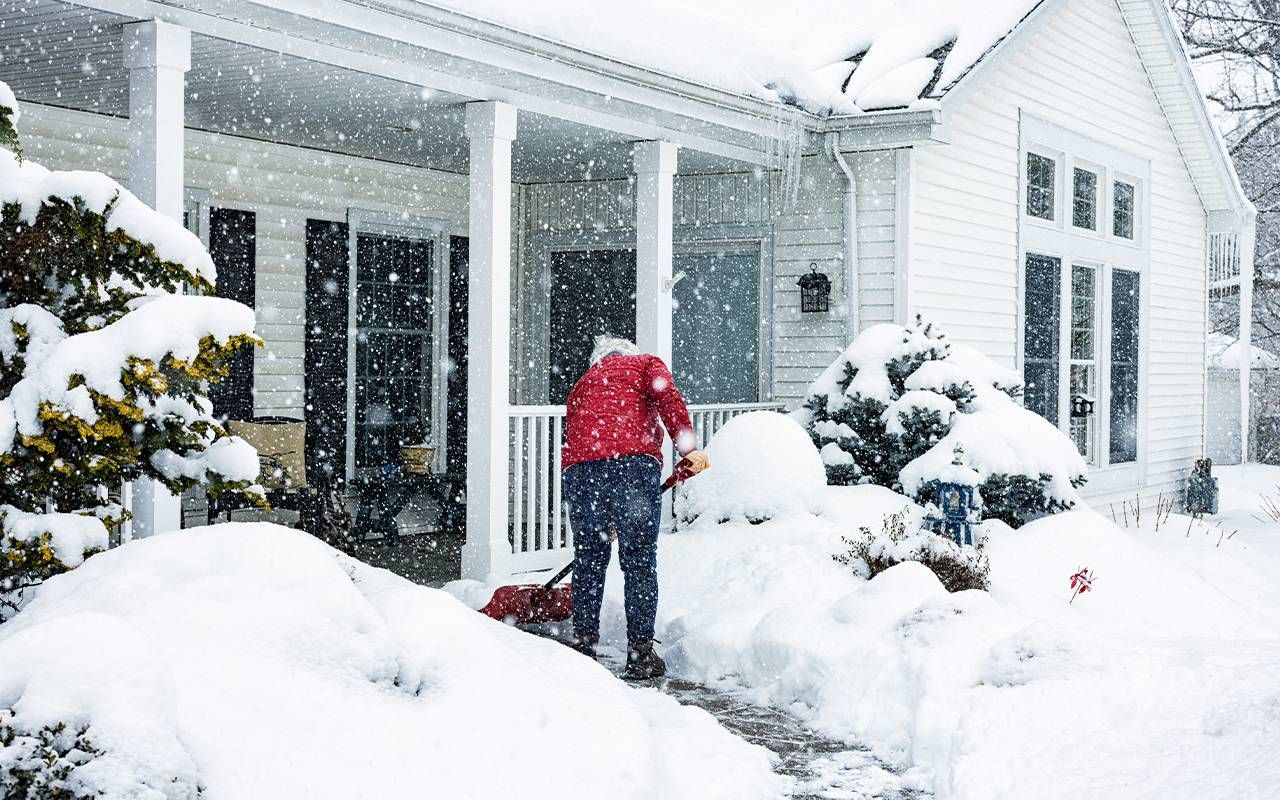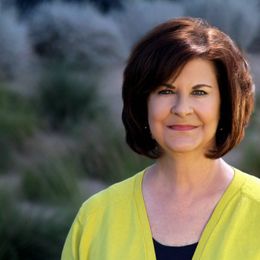Be Wary of Winter Heart Attacks
Because winter heart incidents are real, pay attention to seasonal challenges
January has always been my least favorite month for several reasons — the letdown after the holidays and the dark, cold days punctuated with piles of snow.
And several years ago, my brother's death from sudden cardiac arrest at 55 on a cold January morning gave me another reason to dread the month.

I didn't know then, but I've recently learned that heart attacks increase during winter for various reasons, including cold weather, holiday stress, lack of exercise, virus exposure, and eating and drinking habits.
My brother died from sudden cardiac arrest while outside on a cold morning.
A 2021 study published in the journal Medicine found that overall, in the U.S., cardiac arrests peak during the early winter months of December and January.
According to the American Heart Association's 2022 Heart Disease and Stroke Statistics, approximately 850,000 Americans have heart attacks yearly, and about 350,000 die from sudden cardiac arrest.
My brother died from sudden cardiac arrest while outside on a cold morning. He had never been diagnosed with heart disease, but that doesn't mean he wasn't at risk.
One study concluded that cold weather is a factor in cardiac events for patients without a previous diagnosis of heart disease, perhaps because they aren't adequately medicated for a cardiac condition.
Pay Attention To Seasonal Challenges
Dr. Norman Lepor, a clinical professor of medicine at the Geffen School of Medicine at UCLA and attending physician at the Cedars-Sinai Heart Institute, says that most people are unaware that the risk of heart attacks and strokes increases in winter.
"The three days of the year that have the highest incidence of heart attacks are Christmas Eve, Christmas, and New Year's Day," says Lepor.
"There are multiple factors involved. For example, around the holidays, people may forget to take their medications, their diet changes, and the season is stressful. These are reasons winter is more dangerous in terms of cardiac disease," he explains.
How Does Cold Weather Play a Role?
"The cold can cause a narrowing of the blood vessels, which restricts blood flow," says Lepor. As a result, cold weather can increase blood pressure, and your heart rate tends to go faster. And when you're not exercising regularly, your heart reacts differently to strenuous exercises, such as shoveling snow."
The three days of the year that have the highest incidence of heart attacks are Christmas Eve, Christmas, and New Year's Day.
It's also known that as temperatures drop, viruses increase. During winter, we spend more time indoors, so viruses such as colds and flu pass more easily from person to person.
"The flu is associated with a significantly increased risk of heart attack and stroke, which is why it's important to get your flu vaccination," Lepor says.
Cholesterol Spikes During The Holidays
A 2019 study by Danish researchers found that nine out of 10 people had very high levels of low-density lipoprotein — the "bad" cholesterol — in their bloodstream during the first week of January.
In addition, the analysis suggested that holiday celebration is associated with higher total and LDL cholesterol levels.
Lepor says that cholesterol remains the number one attributable risk for heart disease. Blood tests are a good indicator of cholesterol to assess a patient's risk. Yet, he says other tests are essential.
"Give yourself a holiday gift and ask your doctor for a coronary calcium scan; if it's over zero, you have plaque and need to be treated," Lepor says.
Holiday Heart Is Real
Eating rich and sugary foods and drinking more alcohol can be culprits over the holidays. Excess alcohol consumption at this time of year, known as Holiday Heart Syndrome, is a cause of adverse cardiac events.
"Acute alcohol intake can lead to cardiac rhythm abnormalities, and the most common is atrial fibrillation, which can lead to stroke. However, many people are susceptible to alcohol, so you don't necessarily have to be a heavy drinker to be affected," Lepor says.
Reduce Holiday Stress
Angela Ficken, a licensed psychotherapist in Massachusetts specializing in stress and anxiety disorders, says that the holiday season is a recipe for stress-induced depression and anxiety.
"The cold winter months pack a punch for mental health issues in general — anxiety, depression, sadness and stress. Then take the holiday season and add family and that's a whole other can of worms," notes Ficken.
The best way to reduce holiday stress is to plan. Ficken explains that setting boundaries can lower stress levels, whether with your budget, time, or lifestyle.
"If you know you're going into something hard and your stress level goes up during the holidays, instead of winging it, have a plan," Ficken says. "Think about your budget, the dynamics of family get-togethers, and how you want to spend your time. Planning can help bring down stress levels."
"Also, try to have some self-compassion. It's holiday time, and there's stress, so instead of beating yourself up, focus on what you've learned so that you can do better next time."
Don't Wait to Get to a Hospital
Living in Lakeville, Pennsylvania, Anthony Bombaci, 70, is used to extremely cold weather, but he didn't know his risk of a heart attack increases during the winter months. Then, last winter, Bombaci had a heart attack.
"It can be very cold where we live, and I'm always doing something outside," Bombaci says. So when he began to experience mild chest pain, he decided to go to the hospital.
"It felt like more of a constant discomfort in my chest. People generally wait for severe pain, which I didn't have. So I went to the hospital mainly because of my wife," he says.
After being evaluated and diagnosed with a heart attack, Bombaci had a stent placed in his coronary artery. He feels good, although he knows he has to be cautious now when out in the cold weather.
"I tell patients that if they have to go outside in winter — particularly to shovel snow — to dress appropriately for the weather, take their time and stay hydrated."
Bombaci's cardiologist, Dr. Bradley Serwer, says taking special care during cold weather is extremely important. Serwer is Chief Medical Officer for CardioSolution, an interventional cardiology practice that specializes in assisting hospitals with their cardiology needs, predominately in rural areas of the U.S.
"We see significant physiologic changes depending on winter temperatures and barometric pressures. Studies on increases in heart attacks during cold weather aren't new, but it's clear that many patients aren't aware of the increased risk," says Serwer.
Outdoor exercise in winter can be particularly tricky. Serwer says that people who exercise regularly are at a lower risk overall than someone who made a "New Year's resolution" and goes out once to exercise. Yet he has seen quite a few heart attacks from shoveling snow.
"Blood pressure goes up, heart rates go up, and you don't have to have a pre-existing cardiac condition to be at risk," Serwer says.
Heart-Healthy Strategies
So what are the best strategies to avoid adverse cardiac events like heart attack, stroke, atrial fibrillation, and sudden cardiac arrest during winter?
"I tell patients that if they have to go outside in winter — particularly to shovel snow — to dress appropriately for the weather, take their time and stay hydrated. I advise them to avoid tobacco and alcohol. Sitting and having a couple of martinis before you go out to shovel snow is not recommended," Serwer says.
Above all, recognize the symptoms of heart attack — chest, jaw, or back pain, lightheadedness, shortness of breath, nausea — and if you're developing any symptoms, call 911 or go to the hospital immediately.


